#korean vocabulary list
Explore tagged Tumblr posts
Text
Temel Müzik Terimleri (Basic Music Terms)
노래 (norae) – Şarkı (Song)
음악 (eumak) – Müzik (Music)
가수 (gasu) – Şarkıcı (Singer)
악기 (akgi) – Enstrüman (Musical instrument)
멜로디 (mellodi) – Melodi (Melody)
리듬 (rideum) – Ritim (Rhythm)
가사 (gasa) – Şarkı sözleri (Lyrics)
콘서트 (konseoteu) – Konser (Concert)
Müzik Türleri (Music Genres)
팝 (pap) – Pop
록 (rok) – Rock
힙합 (hiphap) – Hip-hop
재즈 (jaejeu) – Jazz
클래식 (keullaesik) – Klasik müzik (Classical)
발라드 (balladeu) – Balad (Ballad)
R&B (알앤비, a raen bi) – R&B
Müzikle İlgili Fiiller (Verbs Related to Music)
노래하다 (noraehada) – Şarkı söylemek (To sing)
연주하다 (yeonjuhada) – Çalmak (enstrüman) (To play an instrument)
듣다 (deutda) – Dinlemek (To listen)
춤추다 (chumchuda) – Dans etmek (To dance)
#langblr#langblog#korean vocabulary#korece kelimeler#korece öğreniyorum#learn language#kdrama#korece#learn korean#korean#sprunki#music#korean vocabulary list
2 notes
·
View notes
Text
Agust D - 사람 (People) [lyrics+vocab]

Yeah, yeah 산들바람 스쳐가는 사람 스며드는 사람 나는 어떤 사람? 나는 좋은 사람? 아님 나쁜 사람? 평가는 가지각색 그냥 나도 사람
▫ 산들바람 - breeze ▫ 스쳐가다 - to scrape along ▫ 스며들다 - to permeate, to become close ▫ 너는 어떤 사람? - What kind of person are you? ▫ 평가 - evaluation ▫ 가지각색 - various, diverse
다들 살아가겠지 yeah 다들 사랑하겠지 yeah 다들 바래가겠지 Yeah, yeah 잊혀가겠지 사람들은 변하지 나도 변했듯이 세상살이 영원한 건 없어 다 지나가는 해프닝
▫ 살아가다 - to live, live on ▫ 사랑하다 - to love ▫ 바라다 - to long for, wish for ▫ 잊다 - to forget ▫ 변하다 - to change ▫ 세상살이 - life ▫ 영원하다 - to be eternal ▫ 지나가다 - to pass ▫ 해프닝 - a "happening", an event
Why so serious? Why so serious? Why so serious? (Hmm-hmm-hmm) I'm so serious I'm so serious (I'm so serious), I'm so, I'm so
뭐 어때? 스쳐 지나가면, 뭐 어때? Yeah, yeah 뭐 어때? 상처받으면, 뭐 어때? Yeah, yeah 때론 또 아플지도 가끔은 속상해 눈물 흘릴지도 ooh 뭐 어때? 그렇게 살면, 뭐 어때? Yeah, yeah
▫ 뭐 어때 - so what ▫ 상처받다 - to get hurt ▫ 때론 - at times ▫ 속상하다 - to be upset ▫ 눈물을 흘리다 - to shed tears ▫ 살다 - to live
물이 흘러가는 대로 흘러가 ���기 끝은 뭐가 있을지도 특별한 삶 평범한 삶 그 나름대로 좋은 게 좋은 거지 뭐 좋은 게 좋은 거지 뜻대로만 되지 않지 불편은 다들 감수하지 극적인 상황들의 반복은 삶을 지치게도 해 사람들이 그런거지
▫ 물이 흘러가다 - for water to flow ▫ 끝 - end ▫ 나름 - depending on ▫ 뜻대로 - as one wishes ▫ 불편 - inconvenience ▫ 감수하다 - to put up with, endure ▫ 극적이다 - to be dramatic ▫ 상황 - situation ▫ 반복 - repetition ▫ 삶 - life ▫ 지치다 - to be tired
없으면 있고 싶기도 있으면 없고 싶기도 누가 사람이 지혜의 동물이라 했나 내가 보기에는 후회의 동물이 분명한데 사람들은 변하지 너도 변했듯이 세상살이 영원한 건 없어 다 지나가는 해프닝
▫ 지혜 - wisdom ▫ 동물 - animal ▫ 후회 - regret ▫ 분명하다 - to be sure
너의 평범함은 되려 나의 특별함 너의 특별함은 되려 나의 평범함 너의 평범함은 되려 나의 특별함 너의 특별함은 되려 나의 평범함
▫ 평범하다 - to be ordinary ▫ 특별하다 - to be special
23 notes
·
View notes
Photo

"많관부" (manh-gwan-bu) is a Korean slang word. It is short for "많은 관심 부탁드립니다" which can be translated as "Please give me a lot of attention" or "Please show me lots of support." This phrase is often used by Korean celebrities on social media to ask for fans' attention and support for their projects such as upcoming film or album release. It is worth noting that "많관부" is considered a slang word and not a formal expression, so it may not be appropriate to use in all contexts.
🌸 🌼 🌻
Support me at: https://koreanlanguageloving.my.canva.site/
#한국어 공부하기#한국어공부중#한국어공부#한국어 어휘#한국어 문법#한국어 연습#한국어#hangul#learn korean#study korean#korean language#Korean langblr#Korean Vocabulary List
27 notes
·
View notes
Text
Korean Financial Terms #1
Hey there~ I've been studying financial terms in Korean and wanted to share some of the vocabulary with you all!
Bank: 은행
Bank Account: 은행 계좌
Budget: 예산
Cash: 현금
Credit Card: 신용카드
Debit Card: 직불카드, 현금카드
Stock: 주식
Stock Market: 주식 시장
Investment: 투자
Interest Rate: 이자율
Asset: 자산
Dividend: 배당금
Bond: 채권

#korean#korean vocab#korean vocabulary#korean vocab list#korean vocabulary list#korean financial terms#my content
8 notes
·
View notes
Text
한국 전래동화에 나오는 어회와 문법 ! - Vocabulary and grammar in traditional Korean fairytales !
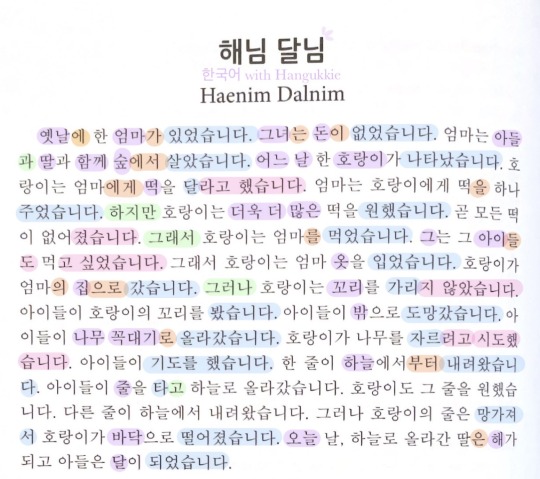
English Translation:
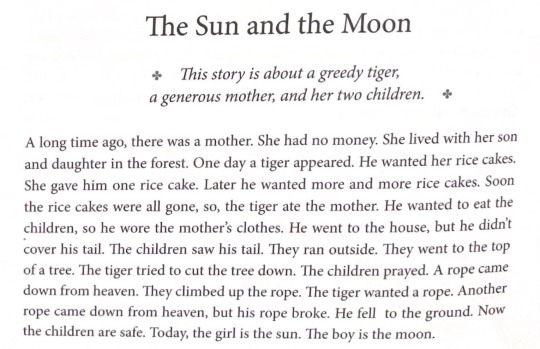
———————————————————
Vocabulary:
옛날 - Olden days
옛날에 - Once upon a time
어머니/엄마 - Mum
그녀 - She/Her
돈 - Money
아들 - Son
딸 - Daughter
함께 - Together
숲 - Forest
어느 - Which
날 - Day
호랑이 - Tiger
떡 - Rice cake
더욱 더 - More and more
많이/많은 - Many/A lot
그 - He/Him
아이 - Kid/Child
아이들 - Kids/Children
옷 - Clothes
집 - House
꼬리 - Tail
밖 - Outside
나무 - Tree
꼭대기 - The top
하늘 - Sky
줄 - Rope
바닥 - Floor
오늘 - Today
해 - Sun
달 - Moon
Grammar - Verbs:
있다 - To exist
없다 - To not exist
살다 - To live
나타나다 - To appear
달다 - To ask/To request (In this context)
주다 - To give
원하다 - To want/To wish/To desire
먹다 - To eat
가다 - To go
가리다 - To cover
보다 - To see
도망가다 - To run away
올라가다 - To go up
자르다 - To cut
기도를 하다 - To pray
내리다 - To get off
떨어지다 - To fall
된다 - To become
Grammar - Sentence Forms:
라고 하다 - For indirect quotations
지다 - To become
도 - Too/Also/As well as
고 싶다 - To want
지 않다 - Is not
려고 - To intend to
시도하다 - To attempt to
Grammar - Connectives:
과 - And/With (With 받침)
하지만 - But
그래서 - So
그러나 - But/However
하고 (고) - And/With
Grammar - Markers/Particles:
에 - To/At (Location and time marker)
가 - Subject particle
는 - Topic particle
이 - Subject particle (With 받침)
에서 - At/In/On/From (Location marker)
에�� - To/For
을 - Object particle (With 받침)
를 - Object particle
들 - Plural marker
의 - Possessive marker
으로 - By/As/For/To/Towards/With (Directional marker)
로 - By/As/For/To/With (Directional marker - with 받침)
부터 - From/Since (Location and time marker)
은 - Topic particle (With 받침)
#korean language#korean langblr#korean#langblr#korean study blog#korean studyblr#study blog#studyblr#korea#korean vocab#korean vocabulary#korean vocab list#Korean stories#Korean fairytales#Korean folktales#korean folklore#한국#한국어#한국어 공부#한국어 읽기#한국어 어휘#한국어 단어#한국어 문법#공부#읽기#어휘#단어#문법#한국 전래동화#전래동화
465 notes
·
View notes
Text
ART HISTORY WORD LIST
I'm slowly reading a book called 청소년을 위한 한국미술사 (Korean Art History for Youth). In the process I came across many interesting terms that may be useful for those who are interested in Korean art and history and maybe would like to read about such topics in Korean in the future. So I decided to share the vocabulary list. Perhaps, to be continued.
선사 [先史] - prehistory
도안 [圖案] - design
암각화 [巖刻畵] - petroglyphs
청동 [靑銅] - bronze
빗살무늬 토기 - comb-pattern pottery
유물 [遺物] - relic, artifact
미의식 [美意識] - aesthetic sense
창의력 [創意力] - creativity
삼국 시대 [三國時代] - Three Kingdoms of Korea
불교 [佛敎] - Buddhism
부처의 현신 [現身] - the Buddha who appeared in the form of a famine in order to save sentient beings
소재 [素材] - material
국교 [國敎] - established religion
강대국 [强大國] - (world) power, powerful nation
학술 [學術] - scholarship
석총 [石塚] - stone grave
석실봉토무덤 [石室封土무덤] - stone-filled tomb
기원전 [紀元前] - B.C. (Before Christ): 기원전 50년 - 50 B.C.
고고학 [考古學] - archaeology
묘제 [墓祭] - a memorial service held before the grave
전기 [前期] - the former part
평면도 - ground plan (architecture)
초상화 [肖像畵] - portrait
고분벽화 [古墳壁畫] - ancient tomb mural
사당 [祠堂] - shrine
신주 [神主] - ancestral tablet
경외감 [敬畏感] - sense of awe
환희 [歡喜] - (great) joy, delight
전달력 [傳達力]- transmission
구체적 [具體的] - detailed
기인하다 [起因하다] - result from
순수 [純粹] - purity
공예품 - handicraft, craftwork
문화재 [文化財] - cultural properties
보관 [保管] - storage
걸작 [傑作] - masterpiece
보고 [寶庫] - repository
청자 [靑瓷] - celadon
극치 [極致] - the height (of)
영토 [領土] - territory, domain
만주 [滿洲] - Manchuria
수나라 [隋나라] - Sui Dynasty
당나라 [唐나라] - Tang Dynasty
명장 [名將] - great commander
저항하다 [抵抗하다] - resist
패망하다 [敗亡하다] - collapse

#korean#word list#korean vocabulary#korean language#langblr#learning languages#language study#foreign languages#language blog#korean word of the day#hangul#hanja#korean history#korean art#한국어#한국미술사
89 notes
·
View notes
Text
Word Of The Day - DOG
pes (m)
(Czech)
.
chien (m)
(French)

hond (m)
(Dutch)
.
perro (m)
(Spanish)
.
개
(Korean)

ʻīlio
(Hawaiian)
.
cane (m)
(Italian)
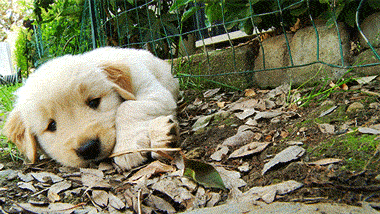
#word of the day#langblr#czech#french#dutch#spanish#korean#hawaiian#italian#czech vocabulary#french vocabulary#dutch vocabulary#spanish vocabulary#korean vocabulary#hawaiian vocabulary#italian vocabulary#vocab#vocab list#vocabulary#vocabulary list#czech langblr#french langblr#dutch langblr#spanish langblr#multilingual#language#polyglot#studyblr#dutch language#languages
15 notes
·
View notes
Text
Korean Weather Vocabulary
Watch my lesson on weather in Korean: https://www.youtube.com/watch?v=D0V_FJsVzkI
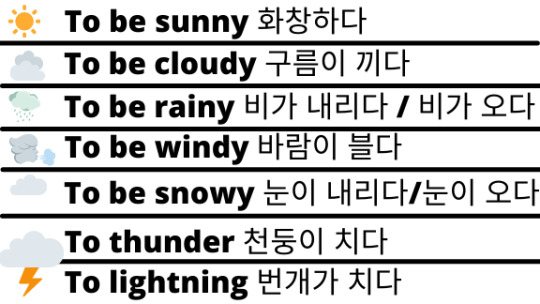
#korean lesson#learn korean#korean#korean vocabulary#korean vocab list#korean vocab#beginner Korean#beginner korean lesson#Korean language#language learning#learning korean#languageblr#language study#langblr#weather in Korean
64 notes
·
View notes
Text
NEW BLOG / NUEVO BLOG.
[ENG] Hi again! Although there is nothing uploaded on the blog yet, you can start following me there to be aware of everything I upload. Thank you so much!
FOLLOW ME ON KOREAN NOOK (KOREAN ENGLISH BLOG)
[ESP] ¡Hola de nuevo! Si bien no hay nada subido en el blog aún, podéis empezar a seguirme allí para estar al tanto de todo lo que suba. ¡Muchas gracias!
SÍGUEME EN COREANO EN CASA (BLOG COREANO ESPAÑOL)
#gigiskjourney#korean langblr#korean language#korean learning#korean study#learn korean#learning korean#studyblr#korean vocab list#korean vocabulary#korean grammar#phrase of the day#korean numbers#한국어#hangul#korean vocab
6 notes
·
View notes
Text
Korean Hanja + Japanese
한글 (Hangeul): 개인
한자 (Hanja): 個人
일본어 (Japanese): 個人 (こじん)
Translation: individual
한글 (Hangeul): 인
한자 (Hanja): 人
일본어 (Japanese): 人 (ひと、-じん)
Translation: Person
11 notes
·
View notes
Text
Describing all the 4 seasons ' 계절' in Korean
Hello everyone ! Today's video is about describing all the 4 seasons ' 계절' in Korean
youtube
Support me on ko-fi: https://ko-fi.com/koreanwithhaneul
#korean with haneul#korean vocabulary#korean vocab list#korean vocaloid#korean#learning#learn korean#korean language#korean learning#korean lesson#language study#korean alphabet#korean study blog#hangul#learnkorean#learning korean#korean studies#studystudystudy#study space#studykorean#study korean#studygram#south korea#apprendre#bts army#korean conjugaison#korean conversation#coréen#korean blog#w
6 notes
·
View notes
Text
youtube
0 notes
Text
Agust D - Amygdala [lyrics+vocab]

I don't know your name I don't know your name, yeah I don't know your name 요즘 기분은 어때? I don't know your name, your name, your name 기억들로 여행 지우고픈 일들 요즘 기분은 어때, 어때, 어때?
▫ 요즘 - lately ▫ 기분 - mood ▫ 요즘 기분은 어때? = How have you been feeling lately? ▫ 기억 - memories ▫ 여행 - travel, trip ▫ 지우다 - to erase 지우고픈 일들 = 지우고 싶은 일들 = Things I want to erase
천구백구십삼 내가 태어난 달 엄마 심장의 수술, 수술, 수술 별의별 일이 많았지 뭐가 이리 다사다난한지 기억조차 안 나는 기억도 다 꺼내 보자고 하나씩 다 꺼내 보자고 하나씩
▫ 태어나다 - to be born ▫ 달 - month ▫ 심장 - heart ▫ 수술 - surgery ▫ 별의별 - all kinds of, various ▫ 다사다난하다 - to be eventful ▫ 꺼내다 - to take out ▫ 하나씩 - one by one
최선들의 선택 다음 차선들의 선택 차차 선들의 선택, 선택, 선택, yeah 원치 않던 일들 내 통제 밖의 일들 자 집어넣자 하나둘 그래 하나둘, 그래 하나둘
▫ 최선 - the best ▫ 선택 - choice, decision ▫ 차선 - the second best ▫ 원하다 - to want ▫ 통제 - control ▫ 밖 - outside, out of ▫ 집어넣다 - put sb into, throw sb into
I don't know your name, your name, your name 기억들로 여행, 여행, 여행 I don't know your name, your name, your name 자 지워보자 하나씩, 그래 하나씩
My amygdala (My amygdala) 어서 나를 구해줘 어서 나를 구해줘 My amygdala (My amygdala) 어서 나를 꺼내줘 어서 나를 꺼내줘 My amygdala (My amygdala) My amygdala (My amygdala) 이곳에서 구해줘 어서 빨리 꺼내줘, yeah, yeah
▫ 어서 - hurry, fast ▫ 구하다 - to save ▫ 이곳 - this place, here ▫ 빨리 - fast
Uh-uh, 그래 참 별의별 일이 많았지 Uh-uh, 귓가엔 엄마 심장 시계 소리 Uh-uh, 전하지 못했던 내 사고 소식과 스케줄 중에 걸려 온 전환 아버지의 간암 소식 (Woah-oh) 최선의 선택들이 맞았었길 (Woah-oh) 그 또한 모두 지나가 버렸기에 그래서 이 수많은 고통은 날 위한 것일까 끊임없던 시련은 날 죽이지 못했고 다시금 나는 연꽃을 피워내
▫ 귓가 - around my ears ▫ 엄마 심장 시계 소리 - the sound of the clock in my mom's heart ▫ 전하다 - to convey ▫ 사고 - accident ▫ 소식 - news ▫ 스케줄 - schedule ▫ 전화가 걸려오다 - to get a phone call ▫ 간암 - liver cancer ▫ 맞다 - to be correct ▫ 지나가다 - to pass ▫ 고통 - pain ▫ 끊임없다 - to be ceaseless ▫ 시련 - ordeal, hardship ▫ 죽이다 - to kill ▫ 다시금 - again ▫ 연꽃 - lotus ▫ 피우다 - to bloom
151 notes
·
View notes
Text
need to get more eloquent, but i don’t wanna give up learning languages. dilemmaaaaaaahhhh :(( i’ve got to pick 3 to commit to & focus on
#french is my main language english is my second one#widening my vocabulary in both has been a goal of mine for a while#my mother tongue is chleuh but i’d rather keep to the basic in it and put my effort into a third#either russian or german#or maybe korean ? who knows#i’ll make a pro/con list . rory style#sal rambles 🌟
1 note
·
View note
Text
🌹 Vocabulary for 2급 1과 🌹
지난 달 - Last month
한달 반 - 1 1/2 months
취직하다 - To be employed
태언나다 - To be born
사귀다 - To date / Go out
시간이 생기다 - To make time (have time)
.🌹.
교사 - Teacher
교수 - Lecturer
편호사 - Lawyer
판사 - Judge
아나운서 - Announcer (News anchor)
비서 - Secretary
판광 안내원 - Tour guide
기술자 - Technician
작가 - Author
통역사 - Interpreter
번역가 - Translator (written)
.🌹.
장점 - Good points (strength)
단점 - Bad points (weakness)
.🌹
1 note
·
View note
Text
졸업 🎓!! - Graduation 🎓!!




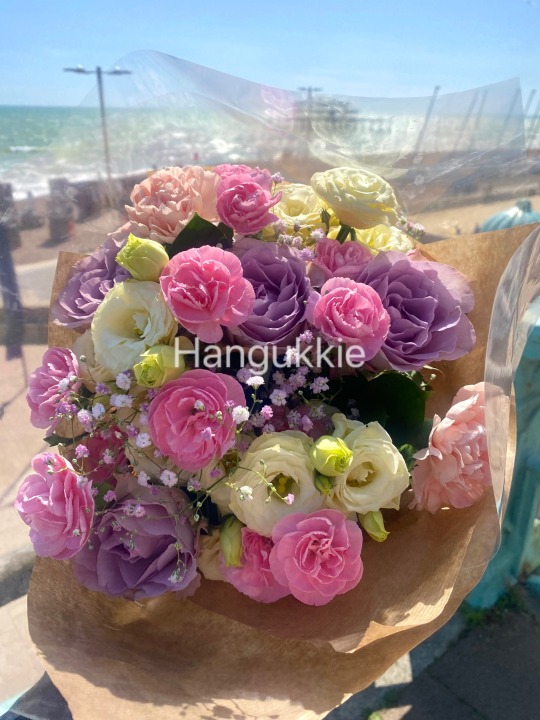




캬아ㅏㅏ~~ 졸업했어요 🥹💐🎓!!
———————————————————
Aaaaaaa!! I graduatedd 🥹💐🎓!!
#I FINALLY GRADUATED AAAAAAAAAA YESSSSSSSS YAHOOOOO WOOHOOOO YIPPEEEEE AJKWNHDBSBEJSJSBWBSHSMKH !!!#korean language#korean langblr#korean#langblr#korean study blog#korean studyblr#study blog#studyblr#korea#korean vocab#한국어 어휘#korean vocabulary#한국#한굴#한국어#어휘#hangul#korean vocab list#한국어 일기#한국어 연습#한국어 공부#졸업#셀카#graduation#personal#졸업식#졸업했어요#university#대학생
49 notes
·
View notes